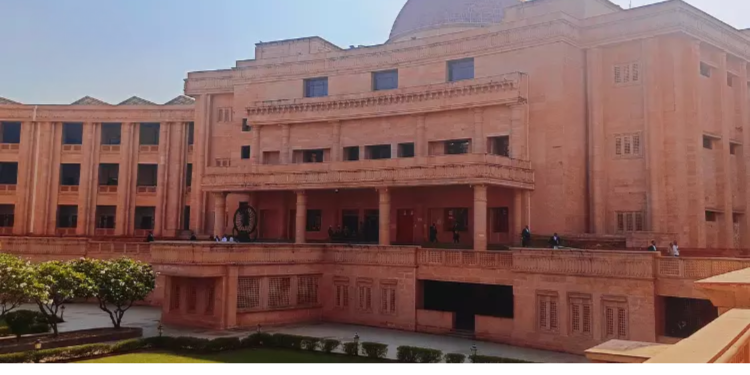The Allahabad High Court has granted bail to four office bearers of the ‘Halal Council of India’ (HCI), an organization accused of issuing fraudulent Halal certificates without legal authorization, thereby allegedly hurting religious sentiments.
The individuals granted bail are Habib Yusuf Patel (president of the council), Muidshir Sapadia (vice president), Mohammed Tahir Zakir Hussain Chauhan (general secretary), and Mohammad Anwar (treasurer). They face charges under Sections 120-B, 153-A, 298, 384, 420, 467, 468, 471, and 504 of the Indian Penal Code (IPC).
Justice Pankaj Bhatia, presiding over the case, granted them bail with the condition that their trust will refrain from issuing any certificates similar to those in question until proper authorization by either the Central or State Government is obtained under the law.
The allegations state that the accused were issuing ‘Halal certificates’ not only for food products but also for toiletries, honey, and vegetarian items, intending to disrupt market equilibrium and gain unauthorized economic benefits.
It was further alleged that their actions were attempting to influence the market dynamics of a specific community, disregarding standards, and affecting market equilibrium through fraudulent certificates, negatively impacting sales.
Additionally, it was argued that these activities aimed to foment enmity between communities and divert economic gains toward terrorism-related activities.
Notably, in November 2023, Uttar Pradesh imposed a comprehensive ban on manufacturing, storage, distribution, and trade of Halal-certified food items within the state.
Subsequently, investigations commenced in Lucknow against four companies, including the Halal Council of India, for suspected misconduct in product certification.
The defense counsel contended that despite providing requested information to authorities in response to a notice under Section 91 of the CrPC on December 6, 2023, the accused were arrested on February 13, 2024.
Furthermore, it was argued that the authority to issue Halal certificates and related notifications by the State of Uttar Pradesh was being challenged in the Supreme Court by four other petitioners who were granted interim protection from coercive action, including challenges to the FIRs filed.
The defense also highlighted circulars issued by the Director General of Foreign Trade under the Foreign Trade Development and Regulation Act, empowering certain bodies to issue Halal certificates upon accreditation. They asserted that the applicants were arrested before the accreditation process was completed.
In response, the Additional Advocate General and the AGA opposed the bail plea, arguing that a private trust had encroached upon sovereign functions, which fall under the jurisdiction of sovereign authorities such as those governed by the Food Safety Act or other regulatory mechanisms.
Given these circumstances and the undertakings provided by the accused’s trust, along with interim protections granted to co-accused facing similar allegations, the Court granted bail to the petitioners without delving into the merits of the allegations.

















